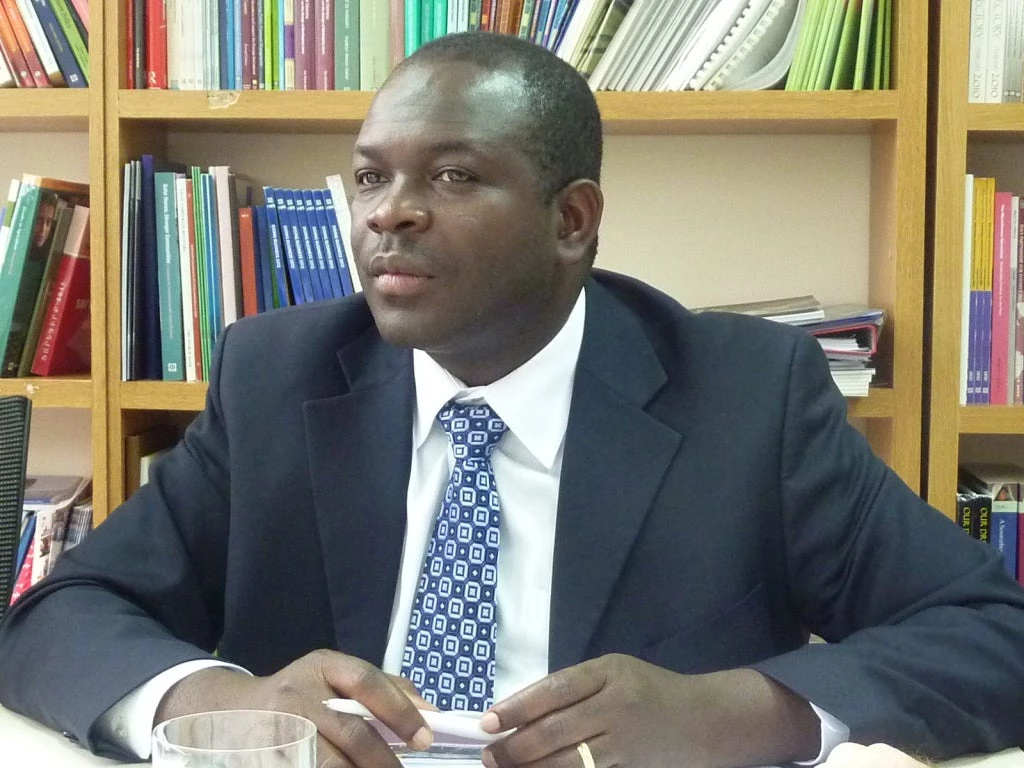 Manila skyline
Manila skyline
The Philippines has a dream of a stable and prosperous middle-class society free of poverty by 2040. Indeed, the Southeast Asian nation of 117 million has already had much success. It is globally known for its exports of electronics, business process outsourcing (BPO) services, and skilled nurses. And its economy grew at an average of 6.3 percent from 2010 to 2018, one of the fastest rates in the world.
Figure 1: The Philippines has achieved high rates of growth since the early 2000s.

Despite its recent growth, the Philippines has lagged behind its Asian peers in per-capita income gains since 1960. To meet its 2040 development goals, the country will need to triple per capita income in just 17 years, which will require an acceleration of labor productivity gains, among other things. Yet some of its export sectors have historically not provided as many high-paying jobs as would be expected in an upper-middle-income country, which the Philippines aspires to be in few years.
How can the country raise productivity and incomes? A recent IMF report, Trade in Services for Development, cites research showing that the broad application of enhanced digital technologies will foster trade and support higher-value-added services in particular. White-collar services ranging from professional and business services to finance, engineering, and marketing activities will become more tradable with increased digitalization, while enhanced digital technologies could make service industries the new frontier of offshoring, driven primarily by labor-cost arbitrage.
Across the world, exports of services – and digitally traded services in particular – offer a fast track to job creation and growth. Fueled by advances in information and communications technologies, global exports of commercial services almost tripled from 2005 to 2022, with digitally delivered services increasing almost fourfold. Developing economies account for a growing share of global services trade.
To kickstart growth in services exports, the Philippines will have to overcome several development constraints identified in World Bank studies, including Growth and Productivity in the Philippines: Winning the Future, Systematic Country Diagnostic of the Philippines, and Fostering Competition in The Philippines. Among the constraints: weak infrastructure, trade costs that are among the highest in Asia and make it difficult to deepen the nation’s participation in global value chains (GVCs), low foreign direct investment attractiveness, and weak learning outcomes and skills retention. Moreover, a lack of universal access to stable and affordable power and digital connectivity hampers the expansion of manufacturing and other industries.
Implementing the reforms needed to address such constraints is difficult due to limited competition in the private sector, strong vested interests that favor the status quo, and an overly restrictive regulatory regime that hampers the creation of new businesses.
Yet there are certainly rays of hope and signs of progress.
Reforms in the telecommunications sector in the 1990s allowed the business process outsourcing sector, which includes things like call centers, to flourish; it has grown rapidly over the past 15 years and today comprises 8 percent of GDP.
These reforms helped bring Concentrix, a global technology company, to the Philippines. With 19 locations in the country, Concentrix is the country’s largest business process outsourcing company and its largest private employer; its headcount of 100,000 is growing at a double-digit rate. It serves a wide range of domestic, regional, and global clients in nine sectors including financial services; healthcare; travel and tourism; consumer electronics; and media and communications.
And while the COVID-19 pandemic hit the Philippines hard, it also accelerated ongoing digitalization in the country. That’s extremely important, because extending access to high-speed internet and expanding e-commerce have the potential to facilitate the global value chain participation of firms that are small or, like Concentrix’s local operations, located in countries with weak infrastructure. Such firms can specialize in GVC segments that provide services via digital technologies rather than physical goods through transportation infrastructure.
High- and medium-value added services, traditionally highly centralized, will increasingly be delivered offshore through teleworking. And teleworking opportunities are being enhanced by advanced digital communication tools, including teleconferencing, augmented reality, virtual reality, and 5G. Meanwhile, cloud storage and computing make it possible to perform complex tasks remotely, while improvements in translation software facilitate communication.
Indeed, a 2019 World Bank country diagnostic found that harnessing technological change and expanding its high-skill service sector will be critical to continued economic growth in the Philippines – and perhaps will allow it to achieve its 2040 ambitions.
And in a 2020 research paper, economist Pol Antràs suggested a positive effect of automation on trade flows, as it can reduce marginal costs and increase optimal scale and the demand for inputs.
Concentrix would agree. The company has internalized the risk of losing its competitive edge to automation by imposing a target of automating 5 percent of its processes each year – using computers for the tasks previously done by people and adopting new technology to increase their productivity—and by doing so incrementally increasing the skill level of its workforce.
The ideas put forward in the book A New Dawn for Global Value Chain Participation in the Philippines, co-authored with Guillermo Arenas, could help emulate the Concentrix experience and foster participation in three strategic GVC clusters already operating in the Philippines: industrial, manufacturing, and transportation; technology, media, and telecommunications; and health and life sciences.
Global uncertainties and challenges lie ahead for the Philippines and other developing economies. Exports of digital services will put them in a strong position to meet those challenges.


Join the Conversation